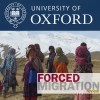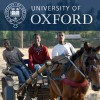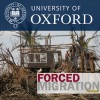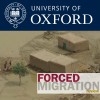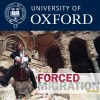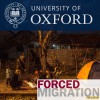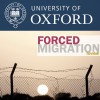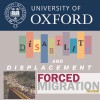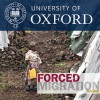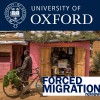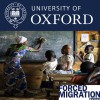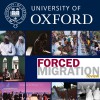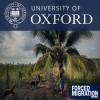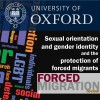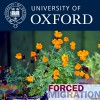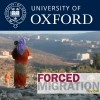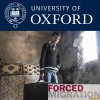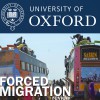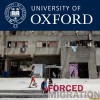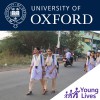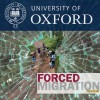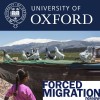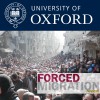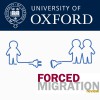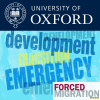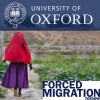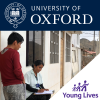Oxford Department of International Development

Relevant Links
The Oxford Department of International Development is the hub for the University of Oxford's work in development and a unit of the University's Social Sciences Division. Its objective is to conduct high level research which advances understanding of the complex economic, social and political processes of change in countries in the poorer parts of the world and to educate students to understand these processes in disciplinary and multi-disciplinary perspective. The Department is located at Queen Elizabeth House in Mansfield Road and is often referred to as 'QEH'.
Series associated with Oxford Department of International Development
| # | Episode Title | Description | People | Date | |
|---|---|---|---|---|---|
| 1246 | Young Lives 7th survey round: Seven headline findings and what the future holds for this 20+ year study | Young Lives has just published results from the study’s 7th survey round. Director Marta Favara reflects on this latest data collection, highlights seven key findings, and shares the next steps for this unique longitudinal study. | Marta Favara, Julia Tilford | 18 Mar 2025 | |
| 1245 | Living through multiple crises: Young Lives’ latest qualitative research uncovering the lived experience of young Ethiopians | Young Lives Country Director Alula Pankhurst launches the study’s latest wave of qualitative research in Ethiopia, exploring young people’s experiences and resilience through the multiple crises of recent years | Julia Tilford, Alula Pankhurst | 06 Dec 2024 | |
| 1244 | How a sound methodology improves understanding of young Ethiopians’ experience of conflict | Researcher Sophie Von Russdorf explains how using audio computer-assisted self-interviews (ACASi), enabled Young Lives to gain a more accurate understanding of the impact of conflict on young people in Ethiopia. | Sophie von Russdorf, Julia Tilford | 14 Aug 2024 | |
| 1243 | Supporting children’s skills development – what works | Growing up in poverty affects children’s skills development. In Episode 3, Kath Ford and Sarah Lane Smith discuss what policies and programmes can make a real difference to children’s future opportunities. | Cath Porter, Kath Ford, Sarah Lane-Smith | 06 Feb 2024 | |
| 1242 | How to keep girls in high school in India | Why do more girls in India drop out of higher education, despite having similar skills to boys? | Cath Porter, Renu Singh | 23 Jan 2024 | |
| 1241 | Unpacking gender and social and emotional skills in the Global South | Children’s skills are a broad field and consistent terminology is elusive. In this episode, Matthew Jukes focuses on social and emotional skills, in particular how they are valued in the Global South. | Cath Porter, Matthew Jukes, Julia Tilford | 23 Jan 2024 | |
| 1240 | 15 years of longitudinal mixed methods research with children: Insights from Peru | Young Lives’ Principal Investigators from Peru discuss what it takes to successfully administer a longitudinal mixed methods research study, working with children, and keeping attrition levels low. | Mary Penny, Alan Sanchez, Lucie Cluver | 07 Jul 2020 | |
| 1239 | Second Keynote and Concluding Remarks; The Hegemonic Rememberance in Post Communist Eastern Europe | Jelena Subotic gives the second and final keynote of the conference, chaired by Jessie Barton-Hronesova. Followed by concluding remarks and next step plans by Jessie Barton-Hronesova and Johana Wyss. | Jelena Subotic, Jessie Barton-Hronesova, Johana Wyss | 05 Jun 2020 | |
| 1238 | Panel 3: How do Local Memories and Grassroots Mnemonic Actors Challenge National Grand Narratives? | Andreza de Souza Santos, Graham Dawson and Jocelyn Alexander give presentations the third panel. Chaired by Kathrin Bachleitner. | Andreza de Souza Santos, Graham Dawson, Jocelyn Alexander, Kathrin Bachleitner | 05 Jun 2020 | |
| 1237 | Panel 2: What is the Relationship between Hegemonic Memories, Silence and Nationalism? | Barbara Törnquist-Plewa and Craig Larkin give presentstions in the second panel of the conference. Chaired by Johana Wyss. | Barbara Törnquist-Plewa, Kateřina Králová, Craig Larkin, Johana Wyss | 05 Jun 2020 | |
| 1236 | Panel 1: What is the Role of International Actors in Shaping the Hierarchy of Memory? | Jasna Dragovic-Soso, Lord John Alderdice, Rachel Ibreck give presentations in the first panel of the conference. Chaired by Jessie Barton-Hronesova. | Jasna Dragovic-Soso, Lord John Alderdice, Rachel Ibreck, Jessie Barton-Hronesova | 05 Jun 2020 | |
| 1235 | Opening Remarks and First Keynote; Curated Stories and the Misuses of Storytelling | Jessie Barton-Hronesova, Johana Wyss and Diego Sánchez-Ancochea introduce the conference and Sujatha Fernandes gives the first keynote to the conference. | Sujatha Fernandes, Jessie Barton-Hronesova, Johana Wyss, Diego Sánchez-Ancochea | 05 Jun 2020 | |
| 1234 | Young Lives Country Directors on Governance and Impact: Discussion and Q and A | Young Lives’ country directors discuss the challenges they've faced when conducting longitudinal research and their different approaches, as well as answering questions from the audience. | Jo Boyden, Santiago Cueto, Alula Pankhurst, Renu Singh | 30 Apr 2020 | |
| 1233 | Young Lives Country Directors on Governance and Impact | In this GCRF-supported workshop, Young Lives’ country directors, from Ethiopia, India and Peru, draw on their considerable experience in research, governance and policy-engagement to highlight the strategies they’ve used to ensure research impact. | Jo Boyden, Santiago Cueto, Alula Pankhurst, Renu Singh | 30 Apr 2020 | |
| 1232 | FMR 62 - From the Editors | Voluntary return in safety and with dignity has long been a core tenet of the international refugee regime. | Marion Couldrey, Jenny Peebles | 25 Oct 2019 | |
| 1231 | FMR 62 - Shared obstacles to return: Rohingya and South Sudanese | The common barriers to return in the cases of Rohingya refugees and South Sudanese IDPs prompt serious questions about how to ensure the safety and voluntariness of returns. | Daniel P Sullivan | 14 Oct 2019 | |
| 1230 | FMR 62 - South Sudanese returns: perceptions and responses | Gaining insight into the experiences and perceptions of refugees can help ensure programming is better able to support refugees’ durable return and reintegration. | Catherine Huser, Andrew Cunningham, Christine Kamau, Mary Obara | 14 Oct 2019 | |
| 1229 | FMR 62 - Return decision making by refugees | There are multiple factors influencing refugees’ decisions to return to their country of origin, not all of which reflect conventional wisdom. | Chloe Sydney | 14 Oct 2019 | |
| 1228 | FMR 62 - Sri Lankan Tamil refugees in India: return or integration? | For Tamil refugees, considerations of sustainability affect their decision to remain in India or return to Sri Lanka. Their views and aspirations must inform planning for both integration and repatriation. | Amaya Valcárcel Silvela | 14 Oct 2019 | |
| 1227 | FMR 62 - Syrians in Germany: individuals’ reasons for returning or remaining | Syrian refugees in Europe are not one homogenous group but are individuals and families from different parts of Syria who have different experiences in exile and different expectations around return. | Ahmad Al Ajlan | 14 Oct 2019 | |
| 1226 | FMR 62 - Working with ‘stayee’ communities: learning from Eritrea | Better understanding of the perceptions and living conditions of the communities into which returnees will arrive may facilitate better integration of those returning from displacement. | Georgia Cole | 14 Oct 2019 | |
| 1225 | FMR 62 - Repatriation principles under pressure | The laws and norms established by the international community to ensure that organised repatriation takes place in a way that protects the rights of refugees are increasingly being violated. | Jeff Crisp | 14 Oct 2019 | |
| 1224 | FMR 62 - Durable solutions for returnee children | Durable solutions frameworks for measuring progress towards sustainable return and reintegration fail to specifically consider children’s different needs and experiences. | Stefanie Barratt, Marion Guillaume, Josiah Kaplan | 14 Oct 2019 | |
| 1223 | FMR 62 - Syrian refugees’ return from Lebanon | Analysis of return practices in Lebanon reveal challenges to voluntary, safe and dignified return. | Tamirace Fakhoury, Derya Ozkul | 14 Oct 2019 | |
| 1222 | FMR 62 - Encouraging Syrian return: Turkey’s fragmented approach | Turkey’s approach to encouraging refugees to return to Syria risks jeopardising the safety and voluntariness of such returns. | Zeynep Sahin Mencutek | 14 Oct 2019 | |
| 1221 | FMR 62 - The politics of return from Jordan to Syria | Return preparedness of Syrian refugees has become a prominent issue in Jordan, but the prospect of return raises numerous concerns. | Julia Morris | 14 Oct 2019 | |
| 1220 | FMR 62 - Rethinking Somali refugee solutions in Kenya | Amid uncertain return conditions, the repatriation of Somali refugees from Kenya risks leading to instances of forced return. Alternative avenues, such as local integration, should be explored. | Peter Kirui, Suzanne Francis | 14 Oct 2019 | |
| 1219 | FMR 62 - Educating for return: Somali refugees in Dadaab | Finding a ‘durable’ solution for Somali refugees in Dadaab means ensuring they have the knowledge, capacity, confidence and qualifications required for meaningful, lasting return. | Ochan Leomoi, Abdikadir Abikar, HaEun Kim | 14 Oct 2019 | |
| 1218 | FMR 62 - Forced to return? Facilitated return of refugees to Myanmar | Despite recent political developments in Myanmar and difficult conditions in Thailand, there has been widespread and deep-seated reluctance among refugees to participate in the official facilitated return mechanism. | Yuka Hasegawa | 14 Oct 2019 | |
| 1217 | FMR 62 - A premature attempt at cessation | There are many lessons to be learned from UNHCR’s controversial – and ultimately reversed – decision to end refugee status for Burmese Chins in India and Malaysia. | Hamsa Vijayaraghavan, Pallavi Saxena | 14 Oct 2019 | |
| 1216 | FMR 62 - Repatriation with dignity | The Rohingya in Bangladesh and Syrians in Lebanon have different expectations of what repatriation ‘with dignity’ would entail. | Kerrie Holloway | 14 Oct 2019 | |
| 1215 | FMR 62 - Minority return: the way home | Studying cases of successful minority return may help determine what policies could help other potential returnees. | Djordje Stefanovic, Neophytos Loizides | 14 Oct 2019 | |
| 1214 | FMR 62 - Legal preparedness for return to Syria | Preparation in terms of legal rights is crucial for Syrian refugees who are planning to return. | Martin Clutterbuck, Laura Cunial, Paola Barsanti, Tina Gewis | 14 Oct 2019 | |
| 1213 | FMR 62 - Return to Syria after evading conscription | Syrian refugees who have evaded military service face barriers to return which call into question the viability and sustainability of other refugee returns. | Ahmad Araman, Shaza Loutfi | 14 Oct 2019 | |
| 1212 | FMR 62 - IDPs of East Beirut versus the Lebanese State | This year marks the thirtieth anniversary of the Taif agreement that formally ended the Lebanese Civil War of 1975–1990. Three decades later, some communities remain internally displaced because of the actions of the State. | Diala Lteif | 14 Oct 2019 | |
| 1211 | FMR 62 - Emerging options for durable solutions in Darfur | IDPs in Darfur continue to face difficulties in securing a durable solution to their displacement. Recent developments may offer new hope for some, but complex challenges remain. | Zurab Elzarov | 14 Oct 2019 | |
| 1210 | FMR 62 - Political and economic reintegration: key to successful return | Refugees and IDPs require national and international actors to make concerted efforts to ensure that they are successfully reintegrated into the economic, social and political landscapes of their countries of origin. | Barbra N Lukunka, Peter de Clercq | 14 Oct 2019 | |
| 1209 | FMR 62 - Returns in complex environments: the case of South Sudan | Humanitarian agencies must be extremely cautious about how they support returns and relocations to ensure that they avoid causing harm or allowing humanitarian assistance to be instrumentalised by political actors. | Babette Schots, Garth Smith | 14 Oct 2019 | |
| 1208 | FMR 62 - Mini-feature - Preventing displacement, addressing root causes and the promise of the Global Compact on Refugees | Preventing displacement by addressing its root causes requires a holistic approach and engagement by a wide range of actors. The starting point must be a better understanding of root causes and their complexity. | Volker Türk | 14 Oct 2019 | |
| 1207 | FMR 62 - Mini-feature - Shifting power and changing practice to support locally led peace building | Building sustainable peace requires both a greater awareness of the dynamics of localised conflict and a willingness on the part of external actors to cede control to local actors. | Alex Shoebridge | 14 Oct 2019 | |
| 1206 | FMR 62 Mini-feature - Land and conflict: taking steps towards peace | Thousands of displaced Yazidis in Iraq have been assisted in making a safe, sustainable return through a project that addressed the complexity of issues around land tenure. | Oumar Sylla, Ombretta Tempra, Filiep Decorte, Clarissa Augustinus | 14 Oct 2019 | |
| 1205 | FMR 62 - Mini-feature - Community-level conflict prevention and peace building in DRC and Somalia | There is growing recognition of the need to address the root causes of displacement through the perspective of the humanitarian-development-peace ‘triple nexus’. A locally led programme in DRC and Somalia reflects this approach and offers useful lessons. | Wale Osofisan, Shuna Keen | 14 Oct 2019 | |
| 1204 | FMR 62 - Mini-feature - Gang violence, GBV and hate crime in Central America: State response versus State responsibility | Significant displacement is caused in Central America by gang violence, gender-based violence and hate crimes against LGBT+ people but State responses have failed to address their root causes. | Vickie Knox | 14 Oct 2019 | |
| 1203 | FMR 62 - Mini-feature - The Palestinian refugee question: root causes and breaking the impasse | Acknowledging the root causes of Palestinian displacement and objectively applying international law will be key to any solution to the Palestinian refugee question. | Francesca P Albanese, Damian Lilly | 14 Oct 2019 | |
| 1202 | FMR 62 - Mini-feature - Resilience spaces: rethinking protection | Collaborative approaches to building capacities of urban IDPs and host communities are emerging as a more effective way of confronting the root causes of protracted and secondary displacement in informal settlements in Colombia. | Pablo Cortés Ferrández | 14 Oct 2019 | |
| 1201 | FMR 61 - From the Editors | What moral principles guide our work? This issue debates many of the ethical questions that confront us in programming, research, safeguarding and volunteering, and in our use of data, new technologies, messaging and images. | Marion Couldrey, Jenny Peebles | 20 Jun 2019 | |
| 1200 | FMR 61 - Big data, little ethics: confidentiality and consent | Donors’ thirst for data is increasingly undermining security and confidentiality, putting both survivors of violence and staff at risk. | Nicole Behnam, Kristy Crabtree | 20 Jun 2019 | |
| 1199 | FMR 61 - New technologies in migration: human rights impacts | States are keen to explore the use of new technologies in migration management, yet greater oversight and accountability mechanisms are needed in order to safeguard fundamental rights. | Petra Molnar | 20 Jun 2019 | |
| 1198 | FMR 61 - Social media screening: Norway’s asylum system | The growing use of data gathered from social media in asylum claim assessments raises critical yet underexplored ethical questions. | Jan-Paul Brekke, Anne Balke Staver | 20 Jun 2019 | |
| 1197 | FMR 61 - Developing ethical guidelines for research | The IASFM has agreed an international code of ethics to guide research with displaced people. Challenges that arose during its development merit continued discussion. | Christina Clark-Kazak | 20 Jun 2019 | |
| 1196 | FMR 61 - ‘Over-researched’ and ‘under-researched’ refugees | A number of ethical issues emerge from working with ‘over-researched’ and ‘under-researched’ refugee groups. | Naohiko Omata | 20 Jun 2019 | |
| 1195 | FMR 61 - Research fatigue among Rwandan refugees in Uganda | Refugees in Nakivale refugee settlement demonstrate research fatigue, yet a return visit by one particular researcher reveals an interesting twist to the tale. | Cleophas Karooma | 20 Jun 2019 | |
| 1194 | FMR 61 - Over-researching migration ‘hotspots’? Ethical issues from the Carteret Islands | The situation of the Carteret Islanders, often characterised as the first ‘climate change refugees’, has attracted much research interest. What is the impact of such interest? And are standard ethics compliance processes appropriate? | Johannes M Luetz | 20 Jun 2019 | |
| 1193 | FMR 61 - Ethics and accountability in researching sexual violence against men and boys | Researching sexual violence against men and boys in humanitarian settings requires navigating multiple ethics- and accountability-related tensions. | Sarah Chynoweth, Sarah Martin | 20 Jun 2019 | |
| 1192 | FMR 61 - Ethics and consent in settlement service delivery | Service providers working in settlement contexts could draw more on research principles in order to better enable new arrivals to understand questions of rights and consent. | Carla Nayton and Sally Baker | 20 Jun 2019 | |
| 1191 | FMR 61 - Ethical primary research by humanitarian actors | As humanitarian agencies increasingly follow the example of academia in establishing ethics review committees, one such agency reflects on the benefits and drawbacks. | Prisca Benelli, Tamara Low | 20 Jun 2019 | |
| 1190 | FMR 61 - EU migration strategy: compromising principled humanitarian action | EU migration policies are undermining basic humanitarian principles and making it more difficult for humanitarian actors to uphold their ethical commitments. | Anaïs Faure Atger | 20 Jun 2019 | |
| 1189 | FMR 61 - A humanitarian approach to travel medicine? | When MSF recently piloted travel medicine services for people travelling along migration routes in Greece, various ethical challenges and moral dilemmas emerged. | Marta Aleksandra Balinska | 20 Jun 2019 | |
| 1188 | FMR 61 - Principled humanitarian assistance and non-State armed groups | The humanitarian community needs to develop a better shared understanding of how to provide principled assistance in areas controlled by proscribed groups. | Ruta Nimkar, Viren Falcao, Matthew Tebbutt, Emily Savage | 20 Jun 2019 | |
| 1187 | FMR 61 - Ethical dilemmas posed by unethical behaviour by persons of concern | What ethical dilemmas affect humanitarian agencies’ responses to fraudulent behaviour by persons of concern? And how might refugee community structures be more involved in defining responses? | Anna Turus | 20 Jun 2019 | |
| 1186 | FMR 61 - Ethical quandaries in volunteering | Volunteers in Greece who are filling gaps in service provision can encounter complex ethical situations for which they may be insufficiently trained and supported. | Ashley Witcher | 20 Jun 2019 | |
| 1185 | FMR 61 - The ethical use of images and messaging | NGOs, international organisations and donors alike must consider the impact of the images and messaging they use in seeking to raise funds for humanitarian assistance. | Dualta Roughneen | 20 Jun 2019 | |
| 1184 | FMR 61 - Representing refugees in advocacy campaigns | The representations of refugees created by advocacy and solidarity groups must be devised in partnership with those whose stories are being told. | Natalie Slade | 20 Jun 2019 | |
| 1183 | FMR 61 - Putting safeguarding commitments into practice | Aid organisations have to go further if they are to meet commitments to prevent sexual exploitation and abuse, listen to survivors, and remove barriers to reporting. | Agnes Olusese, Catherine Hingley | 19 Jun 2019 | |
| 1182 | FMR 61 - Safeguarding in conflict and crisis | Robust, comprehensive safeguarding measures, including those used in crisis- and conflict-affected contexts, need to take appropriate account of local contexts in order to adhere to the highest international standards, including in safeguarding children. | Sarah Blakemore, Rosa Freedman | 19 Jun 2019 | |
| 1181 | FMR 61 - Tribute to Barbara Harrell-Bond - A life not ordinary: our colleague Barbara Harrell-Bond | During Refugee Week 2018, the Refugee Studies Centre showed a new film entitled A Life Not Ordinary, a documentary about Barbara Harrell-Bond, OBE, Emeritus Professor, founder of the RSC, and our colleague. | Dawn Chatty, Matthew Gibney and Roger Zetter | 19 Jun 2019 | |
| 1180 | FMR 61 - Tribute to Barbara Harrell-Bond - A lifelong commitment to justice | Barbara Harrell-Bond’s work had a radical impact on the lives of the uprooted and on people’s attitudes towards them. | HRH Prince El Hassan bin Talal of Jordan | 19 Jun 2019 | |
| 1179 | FMR 61 - Tribute to Barbara Harrell-Bond - A refugee-centered perspective | Part of Barbara’s legacy is her refugee-centred approach to forced migration and refugee studies. | Anita H Fábos | 19 Jun 2019 | |
| 1178 | FMR 61 - Tribute to Barbara Harrell-Bond - Building expert witness reports: Barbara’s legacy | The importance of rigour and detail in preparing expert witness reports cannot be overstated. | Maja Grundler | 19 Jun 2019 | |
| 1177 | FMR 61 - Tribute to Barbara Harrell-Bond - The helpfulness of Imposing Aid: a tribute from the Refugee Law Project | Twenty years after Barbara Harrell-Bond co-founded the Refugee Law Project in Uganda, its current director considers the continuing legacy of the principles that run through her book. | Chris Dolan | 19 Jun 2019 | |
| 1176 | FMR 61 - Tribute to Barbara Harrell-Bond - Barbara’s ethics of antagonism | Barbara Harrell-Bond’s approach stemmed from her core belief that we are all adults, all equal, all responsible. | Joshua Craze | 19 Jun 2019 | |
| 1175 | FMR 61 - Tribute to Barbara Harrell-Bond - AMERA: delivering a refugee-centred approach to protection | Former AMERA staff and advisers reflect on the impact this NGO had in advancing refugee protection and how it embodied Barbara Harrell-Bond’s philosophy. | Sarah Elliott, Megan Denise Smith | 19 Jun 2019 | |
| 1174 | FMR 61 - Tribute to Barbara Harrell-Bond - From a critique of camps to better forms of aid | What insights can the pre-eminent critic of camp-based aid provision, Barbara Harrell-Bond, offer contemporary practitioners? | Alyoscia D’Onofrio | 13 Jun 2019 | |
| 1173 | FMR 61 - Tribute to Barbara Harrell-Bond - Resist injustice | The assistance that I, as a refugee, received from Barbara Harrell-Bond shows that her defence of refugees went far beyond the preparation of asylum applications. | Olivier Rukundo | 13 Jun 2019 | |
| 1172 | FMR 60 - General - Implementing the Global Compacts: the importance of a whole-of-society approach | The global community must now take incisive, coordinated action through a whole-of-society approach to push forward the effective implementation of the two Global Compacts. | Tamara Domicelj, Carolina Gottardo | 20 Feb 2019 | |
| 1171 | FMR 60 - General - Localisation: we are frustrated, not stupid! | The Grand Bargain promises much but an inherent lack of trust in the international system is hampering local capacity building. | Listowell Efe Usen | 20 Feb 2019 | |
| 1170 | FMR 60 Evidence for education in emergencies: who decides and why it matters | Analysis of educational research funding proposals submitted to Dubai Cares, a global education funder, indicates an alarming absence of input from local actors and end-users at all steps of the process. | Nadeen Alalami | 20 Feb 2019 | |
| 1169 | FMR 60 - Feasible measurement of learning in emergencies: lessons from Uganda | A new assessment tool aims to provide a rapid, holistic understanding of displaced learners' needs. | Nikhit D'Sa, Allyson Krupar, Clay Westrope | 20 Feb 2019 | |
| 1168 | FMR 60 - Improving learning environments in emergencies through community participation | An education in emergencies toolkit developed by Save the Children looks at how learning environments can be improved through community participation. | Zeina Bali | 20 Feb 2019 | |
| 1167 | FMR 60 - Schooling gaps for Syrian refugees in Turkey | Turkey and the wider international community must address gaps in educational provision so that Syrian refugees can access appropriate opportunities to learn. | Melissa Hauber-Özer | 20 Feb 2019 | |
| 1166 | FMR 60 - Navigating curricula choices for Palestine refugees | Curriculum choices matter greatly in countries that host large number of refugees for increasingly long periods of time. | Jo Kelcey | 20 Feb 2019 | |
| 1165 | FMR 60 - Street schools and school buses: informal education provision in France | In the face of increasingly limited access to schooling for asylum seekers and migrants in France, volunteer initiatives have sprung up to provide much-needed informal education. | Maria Hagan | 19 Feb 2019 | |
| 1164 | FMR 60 - Early childhood development and psychosocial support in Syria | Programming for early childhood development and psychosocial support needs to be able to evolve in order to cater for changing needs and to respond to emerging challenges. | Fatima Khaddour | 19 Feb 2019 | |
| 1163 | FMR 60 - Foreword: Education – a humanitarian and development imperative | For far too long, donors and the international community have neglected education in humanitarian response. Switzerland was no exception. Food, water, health and shelter were the usual priorities during emergencies, while education was considered more of | Manuel Bessler | 19 Feb 2019 | |
| 1162 | FMR 60 - Gender equality in education in emergencies | Evidence from programming built around this framework shows how a gender-responsive approach can alleviate the particular risks that face girls and boys during crisis and displacement. | Eva Iversen, Else Oestergaard | 19 Feb 2019 | |
| 1161 | FMR 60 - From the editors | In this issue of FMR, authors from around the world debate how better to enable access to quality education both in emergency settings and in resettlement and asylum contexts. | Marion Couldrey, Jenny Peebles | 01 Feb 2019 | |
| 1160 | FMR 60 - Feeling safe enough to learn in a conflict zone | Building an internal sense of safety while also teaching coping skills and how to remain alert to the very real risks outside is essential if psychosocial programming in Afghanistan is to provide a ‘safe space’ for children to learn in a context of high i | Bethan McEvoy | 01 Feb 2019 | |
| 1159 | FMR 60 - Breaking the silence: sexual coercion and abuse in post-conflict education | Experience from the Central African Republic makes clear that global efforts to increase numbers of children in school, particularly in conflict-affected areas and for displaced children, need to pay greater attention to safety and accountability. | Sophie Bray-Watkins | 01 Feb 2019 | |
| 1158 | FMR 60 - Strengthening education systems for long-term education responses | Implementation of programmes in DRC and Nigeria demonstrates how the building blocks for long-term improvements can be laid in the earliest stages of an education in emergencies response, even in the most challenging contexts. | Thea Lacey, Marcello Viola | 01 Feb 2019 | |
| 1157 | FMR 60 - Jordan: education policy in transition | As the education sector in Jordan moves from a humanitarian to a development response, a lack of planning for an appropriate transition risks excluding some groups of learners. | Julie Chinnery | 01 Feb 2019 | |
| 1156 | FMR 60 - Applying learning theory to shape 'good learning' in emergencies: experience from Dadaab, Kenya | Applying one learning theory retrospectively to a non-formal education programme for youth shows how learning theories can be used to assess learning in diverse EiE programmes. | Allyson Krupar, Marina L Anselme | 01 Feb 2019 | |
| 1155 | FMR 60 - Child-friendly spaces: enhancing their role in improving learning outcomes | Providing psychosocial support to children through the medium of child-friendly spaces can improve learning outcomes for children but requires more localised, partnership-driven and gender-responsive approaches and strengthened monitoring and evaluation. | Gurvinder Singh, Charlotte Tocchio | 01 Feb 2019 | |
| 1154 | FMR 60 - Refugee children with communication disability in Rwanda: providing the educational services they need | Research undertaken in Rwanda aims to provide firm evidence for use in improving access to inclusive educational services for refugee children with communication disability. | Helen Barrett, Julie Marshall, Juliet Goldbart | 01 Feb 2019 | |
| 1153 | FMR 60 - Refugee education in Greece: integration or segregation? | Although education policies have been devised to integrate these children into the Greek education system, these policies have actually led to some students being segregated. | Giorgos Simopoulos, Antonios Alexandridis | 01 Feb 2019 | |
| 1152 | FMR 60 - Accessing and thriving in education in the UK | Research shows that significant barriers confront refugee and asylum-seeker children arriving in the UK in terms of them getting into school and thriving in education. | Catherine Gladwell | 01 Feb 2019 | |
| 1151 | FMR 60 - Learning in resettlement | Education is a central element of resettled families’ lives and providing support to parents and children to learn about and integrate into the education system is essential. | Marwa Belghazi | 01 Feb 2019 | |
| 1150 | FMR 60 - UK immigration policy: restrictions on asylum seekers' right to study | Changes to immigration legislation in the UK have led to restrictions on many asylum seekers' right to study. | Helen Baron | 01 Feb 2019 | |
| 1149 | FMR 60 - 'Education is key to life': The the importance of education from the perspective of displaced learners | Students on the University of East London's OLIve course – a preparatory course for university access specifically tailored to refugees and asylum seekers in the UK – share experiences of accessing education as displaced learners. | OLIve course Students, IT trainer, director of the OLIve course | 01 Feb 2019 | |
| 1148 | FMR 60 - Educating unaccompanied children in US shelters | Educational services provided to unaccompanied children in government-funded shelters in the US must be examined more critically in order to better meet the children’s varied needs – and federal standards for public education. | Kylie Diebold, Kerri Evans, Emily Hornung | 01 Feb 2019 | |
| 1147 | FMR 60 - Teachers in displacement: learning from Dadaab | Despite the challenges they face, refugee teachers believe in the potential of education to transform the lives of refugee learners and communities. Their voices and needs must inform refugee education provision in order to improve access and outcomes. | Mohamed Duale, Ochan Leomoi, Abdullahi Aden, Okello Oyat | 01 Feb 2019 |
- 1 of 13
- next ›

